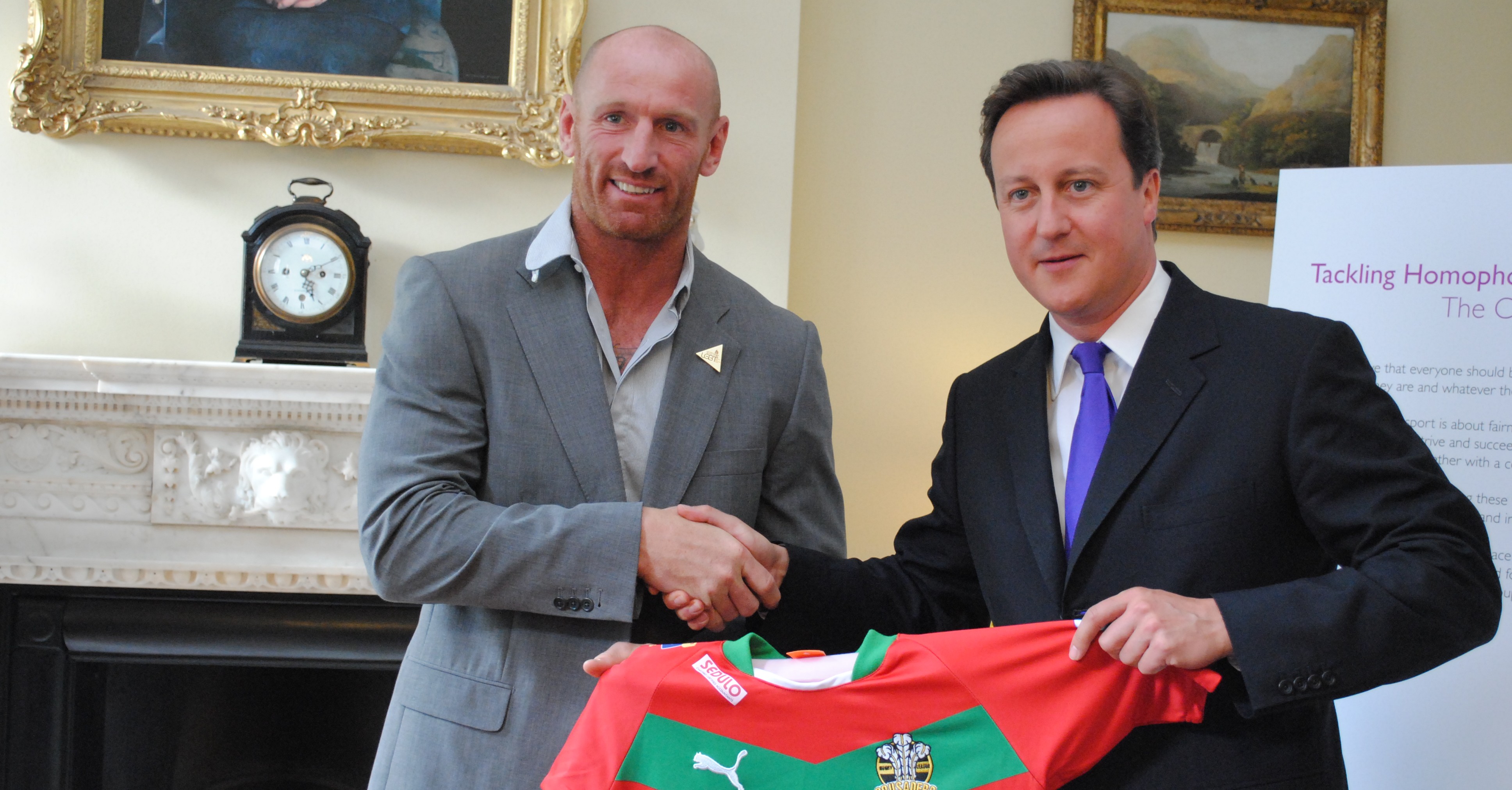If you, be you queer or ally, have been paying attention to ESPN over the last few months, you probably couldn’t tell whether or not American sports are making any progress in terms of respect and tolerance towards the queer community. Divergent events make headlines all the time, and between the New York Rangers’ Sean Avery supporting New Yorkers for Marriage Equality, and Kobe Bryant of the L.A. Lakers calling a referee a “f—ing faggot,” it’s difficult to tell where we are exactly.
Such contrasting and highly public actions make it difficult to discern whether or not respect for the queer community, at least in the world of pro-sports, is making any progress with this constant back and forth.
Visible steps forward have, indeed, been taken this year when the President and CEO of the Phoenix Suns Rick Welts publicly acknowledged his own homosexuality. Welts received support from 11-time NBA All-Star Charles Barkley, who spoke candidly of his friendship with gay teammates (although not naming specific players).
While that is certainly encouraging, the simple fact is this: there is no openly gay athlete currently active in any of America’s four major professional sports markets, (NFL, MLB, NBA and NHL) all of which are men’s sports.
And until that changes, young homosexual athletes, gay young men in particular, have no model or precedent from which to draw strength and inspiration.
Gay male athletes in this country are without a role model in professional sports, which puts them a step behind their female counterparts. Sheryl Swoopes of the WNBA’s Houston Comets revealed her same-sex relationship to the public in 2005, making her the only pro-athlete to do so at the time. It is doubtful that any of her teammates saw her sexuality as a locker room distraction, as she was a three-time WNBA league MVP and is arguably one of the best women to play the game.
On the other end of the spectrum, Kobe Bryant is also considered one of basketball’s greatest, but he had to take $100,000 worth of discipline after cussing out referee Bennie Adams, calling him “a faggot.”
Kobe claimed his homophobic slur was “out of frustration in the heat of the game.” He says that his remarks do not reflect his feelings towards the gay and lesbian communities and that he did not mean to offend anyone.
But Kobe clearly meant to offend referee Bennie Adams. The bullet was already in the chamber, and when he fired off “faggot” he held a negative connotation with the homosexual community. It is true that his comments were out of frustration, but in his frustration he spat out an insult that was, to him, the most primal and offensive verbal slight in his arsenal: a crass accusation of homosexuality.
Phoenix Suns’ President Rick Welts informed Commissioner David Stern of his sexuality just one day before Kobe’s incident.
“What can you say to a man that is the most-demeaning to his masculinity? Call him gay,” Welts said of Bryant’s remarks to Jeremy Schaap of ESPN. “That’s when all those filters disappeared and he was looking for the thing that could be most impactful in that moment, you know? That’s what he came up with.”
It is that type of language from Bryant that keeps players in the closet by propelling the false idea that “gay” and “not-masculine” are interchangeable terms.
Enter Gareth Thomas, member of the Welsh national rugby team and the only openly gay male athlete in a major team sport. As reported by Gary Smith of Sports Illustrated in May 2010, Thomas has dominated professional rugby his entire career. He has been named to the Welsh national team more than any other man and is the second-leading international scorer in Welsh history. Thomas has led Wales to some of its greatest triumphs in 27 years and is still playing at the age of 37. He’s had his nose broken five times, is missing eight teeth and stands tall at 6’3’’, 230 pounds.
Even though the general public wasn’t initially behind Thomas (he once tried to jump a guard rail to find and fight a fan who called him a “gay bastard”), he had the fierce, unyielding support of his coaches and teammates. Thomas talks of how, after he came out, he realized that his mates didn’t give a damn about his orientation because he was both a great athlete and a great teammate.
And now kids all over Wales and throughout Europe, gay and straight alike, have Gareth Thomas posters in their room. To them, he’s the best Welshman to ever step onto the pitch and not simply “that gay rugby player”.
Someday U.S. male sports will catch up to the women and catch up to Gareth. It will happen, whether it’s a right fielder who bats 360 with power, a point guard who can break your ankles or a wide receiver with hands like Cris Carter—we’ll see them some day.
We’re really waiting for a male Sheryl Swoopes or an American Gareth Thomas to break down on of the last daunting barriers of homosexuality in this country.
When that person arrives, there will be kids, all the way from high school junior varsity up through triple A and even The Show, who will breathe easy when they finally realize, as Thomas and Swoopes did, that they are not alone.

Great article.